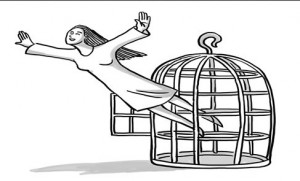Throughout the developing world, “and increasingly in Africa and Asia,” the single largest occupation for women is agriculture. Yet although they perform much of the labor, women and girls (who make up the majority of the planet’s poor) are often restricted from actually owning the land they work.
Formerly the Rural Development Institute, Landesa is a not-for-profit organization dedicated to supporting the world’s impoverished individuals, families, and communities, as well as to help them secure land rights. Tim Hanstad, Landesa’s president and CEO, describes it as an ” ugly truth” how, in many cases, societal groups of men work to systematically hold women back. In the developing world, men tend to control national, civic, and household leadership. Thus, customs are policies are shaped to support the agenda of male hegemony. Empowering women is difficult in places that feature entrenched systems of male dominance.
That said, a major tenet of Hanstad’s message is a focus on clarifying a common (yet crippling) misunderstanding about the path to women’s empowerment:
“We have to address the misconception that empowering women means you’re disempowering men. That’s a myth. It’s a misconception. Empowering one empowers all. Empowering women empowers men, children, families and ultimately the entire society.
Women’s economic empowerment is, it’s not a women’s issue, it’s a societal issue.”
Hanstad explains that you have to emphasize this point to get men to buy into things such as the female vote or land ownership. They have to understand that the currency of social impact is not finite. Empowering women does not tip a scale in men’s disfavor. You don’t take from one side to support the other. Instead, to allow women additional rights and grant them greater social influence creates social currency. To think of rights, privileges, and influence as finite resources misses the point entirely that women are, as Hanstad calls them, “underutilized social and economic change agents.”
Interestingly, Hanstad also notes that a man’s opinion on whether to empower the women in his life hinges on his children more than on his wife:

